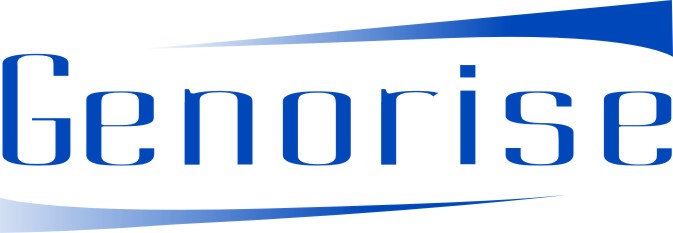Recombinant Porcine TGFb1 Protein
$99.00 – $285.00
The recombinant porcine TGFb1 protein is derived from in vitro expression of porcine TGFb1 gene in E. coli and purified using his-tag affinity column and can be used in multiple applications such as cell culture, ELISA and western blot.
Alternative names for TGFb1: transforming growth factor beta 1
This product is for Laboratory Research Use Only not for diagnostic and therapeutic purposes or any other purposes.
- Description
- Product Citations
- Reviews (0)
Description
Genorise Recombinant Porcine TGFb1 Protein Summary
Alternative names for TGFb1: transforming growth factor beta 1
Alternative name for porcine: pig
Product Specifications
| Purity | > 96%, by SDSPAGE under reducing conditions and visualized by silver stain. |
| Endotoxin Level | < 0.1 EU per 1 μg of the protein by the LAL method. |
| Activity | Measured by its ability to inhibit the IL-4-dependent proliferation of HT-2 mouse T cells. Tsang, M et al. (1995) 7:389. The ED50 for this effect is typically 40-200 pg/mL. |
| Source | E. coli derived porcine TGFb1. |
| Accession # | NP_999180.1 |
| N-Terminal Sequence Analysis | Ala |
| Amino Acid Sequence | Ala279 –Ser390 |
| Predicted Molecular Mass | 12.6 kDa |
| SDS-PAGE | 12.6 kDa, reducing conditions |
Background:
TGFβ1 (transforming growth factor beta 1) is one of three closely related mammalian members of the large TGFβ superfamily that share a characteristic cystine knot structure (1 7). TGFβ1, 2 and 3 are highly pleiotropic cytokines that are proposed to act as cellular switches that regulate processes such as immune function, proliferation and epithelialmesenchymal transition (1 4). Each TGFβ isoform has some nonredundant functions; for TGFβ1, mice with targeted deletion show defects in hematopoiesis and endothelial differentiation, and die of overwhelming inflammation (2). Human TGFβ1 cDNA encodes a 390 amino acid (aa) precursor that contains a 29 aa signal peptide and a 361 aa proprotein (8). A furinlike convertase processes the proprotein to generate an Nterminal 249 aa latency associated peptide (LAP) and a C terminal 112 aa mature TGF β1 (8, 9). Disulfidelinked homodimers of LAP and TGFβ1 remain noncovalently associated after secretion, forming the small latent TGFβ1 complex (8 10). Covalent linkage of LAP to one of three latent TGFβ binding proteins (LTBPs) creates a large latent complex that may interact with the extracellular matrix (9, 10). TGFβ is activated from latency by pathways that include actions of the protease plasmin, matrix metalloproteases, thrombospondin 1 and a subset of integrins (10). Mature human TGFβ1 shares 100% aa identity with pig, dog and cow TGFβ1, and 99% aa identity with mouse, rat and horse TGFβ1.
It demonstrates crossspecies activity (1). TGFβ1 signaling begins with highaffinity binding to a type II ser/thr kinase receptor termed TGF β RII. This receptor then phosphorylates and activates a second ser/thr kinase receptor, TGFβ RI (also called activin receptorlike kinase (ALK) 5), or alternatively, ALK-1. This complex phosphorylates and activates Smad proteins that regulate transcription (3, 11, 12). Contributions of the accessory receptors betaglycan (also known as TGFβ RIII) and endoglin, or use of Smadin dependent signaling pathways, allow for disparate actions observed in response to TGFβ in different contexts (11).
References:
- Derynck, R. and K. Miyazono (2008) Cold Spring Harbor Laboratory Press, 29.
- Dunker, N. and K. Krieglstein (2000) Eur. J. Biochem. 267:6982.
- Wahl, S.M. (2006) Immunol. Rev. 213:213.
- Chang, H. et al. (2002) Endocr. Rev. 23:787.
- Lin, J.S. et al. (2006) Reproduction 132:179.
- Hinck, A.P. et al. (1996) Biochemistry 35:8517.
- Mittl, P.R.E. et al. (1996) Protein Sci. 5:1261.
- Derynck, R. et al. (1985) Nature 316:701.
- Miyazono, K. et al. (1988) J. Biol. Chem. 263:6407.
- Oklu, R. and R. Hesketh (2000) Biochem. J. 352:601.
- de Caestecker, M. et al. (2004) Cytokine Growth Factor Rev. 15:1.
- Zuniga, J.E. et al. (2005) J. Mol. Biol. 354:1052.
Product Citations
Be the first to review “Recombinant Porcine TGFb1 Protein”
You must be logged in to post a review.
























Reviews
There are no reviews yet.